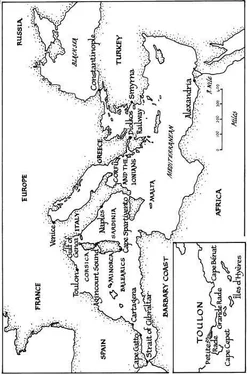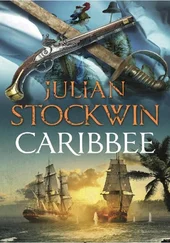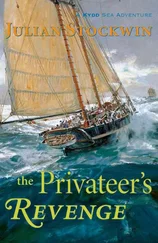Julian Stockwin - Victory
Здесь есть возможность читать онлайн «Julian Stockwin - Victory» весь текст электронной книги совершенно бесплатно (целиком полную версию без сокращений). В некоторых случаях можно слушать аудио, скачать через торрент в формате fb2 и присутствует краткое содержание. Жанр: Старинная литература, на английском языке. Описание произведения, (предисловие) а так же отзывы посетителей доступны на портале библиотеки ЛибКат.
- Название:Victory
- Автор:
- Жанр:
- Год:неизвестен
- ISBN:нет данных
- Рейтинг книги:4 / 5. Голосов: 1
-
Избранное:Добавить в избранное
- Отзывы:
-
Ваша оценка:
- 80
- 1
- 2
- 3
- 4
- 5
Victory: краткое содержание, описание и аннотация
Предлагаем к чтению аннотацию, описание, краткое содержание или предисловие (зависит от того, что написал сам автор книги «Victory»). Если вы не нашли необходимую информацию о книге — напишите в комментариях, мы постараемся отыскать её.
Victory — читать онлайн бесплатно полную книгу (весь текст) целиком
Ниже представлен текст книги, разбитый по страницам. Система сохранения места последней прочитанной страницы, позволяет с удобством читать онлайн бесплатно книгу «Victory», без необходимости каждый раз заново искать на чём Вы остановились. Поставьте закладку, и сможете в любой момент перейти на страницу, на которой закончили чтение.
Интервал:
Закладка:
They would keep close with the port, with the dual object of ensuring no movements would be missed and offering themselves as tempting bait. In as wide a region as the Mediterranean there were, of course, other fleet rendezvous specified. Each would be referred to only by a code number but the main alternative to Toulon was at the south tip of Sardinia, perfectly astride the main east–west sea passage from Gibraltar to the Middle East.
There were extensive sections on signals: to a frigate bearing urgent news it was vital the meaning was clear. To this end not only the familiar signal book was to be employed but the new Popham telegraph code was to be adopted with its near infinite number of messages possible.
Further orders covered such mundane matters as the manner of victualling ship, observations on the health of seamen and the importance of weekly accounts. Nothing was left to chance and the overriding impression Kydd had was of swelling detail, all of which was a tribute to the care and worry the commander-in-chief was bringing to his task.
L’Aurore sailed for Toulon the next day in the teeth of yet another hard nor’-wester, her captain under no illusions as to the importance of his tasking. Bucking and plunging by long boards north through misty rain, they raised the darker band of the French coast in the early afternoon and by evening were off the Ȋles d’Hyères at the eastern reaches of the port.
Standing off and on through the hours of darkness, they sighted Active in the morning, cruising perilously close inshore. The two drew together and through a speaking trumpet Kydd was told that Seahorse would be found to the westward as the two endlessly criss-crossed in the offing, and that it might be prudent to shorten sail in the blow that was coming.
Then they were on their own: somewhere they would pass Seahorse but for the rest it was eagle-eyed vigilance in the worst weather, and all responsibility for keeping the enemy under watch. What if he suddenly spotted the regular procession of the enemy leaving? Did he go looking for Seahorse or instantly clap on all sail for Nelson – and thereby lose the vital knowledge of where the French were headed? It was a desperate worry, for Kydd knew that it was within his power to lose the battle for Nelson if he decided wrongly.
L’Aurore gave a sickening wallow to leeward, ending in a teeth-jarring crunch as a wave surged and exploded against her hull, sending sheets of ice-cold spray over the sodden watch.
A rounded and stern headland loomed darkly out of the driving rain. This must be Cape Bénat, as far east as he need go; beyond, the coast trended north-east, past the old wine port of St Tropez to Cannes, Monaco and the rest to the Italian border.
‘Hands to wear ship!’ In this bluster there was no need to stress spars and rigging by staying about and L’Aurore eased around to lie on the starboard tack for the long wet haul west back past Toulon. When they cleared the last of the Ȋles d’Hyères for the open sea, Kydd left the deck. At least this was not a continual, wearing lee shore, as Brest was, where a mishap with a mast or spar carrying away threatened headlong destruction on the bleak granite coast.
He pulled off his streaming foul-weather gear, grateful that he had ignored Tysoe’s disapproval of his comfortable old grego, wedged himself into his chair and went over his orders once more. His duty was clear and, as far as signals went, he had every confidence in the master’s mate Saxton, who had taken away the Popham to ‘get it by heart’.
The real problem would be when—
There was confused shouting above and he snapped alert. Grabbing his grego, he found the companionway and swung up on deck to see Curzon talking urgently to Howlett and pointing off the bow. A hail came from the fore-top lookout and then he spotted a close-packed gaggle of sail emerging from the murk.
With a lurch of the heart he saw that these were no trivial coasters, or even frigates, but vessels displaying the ominous bulk of ships-of-the-line. Was this a feint, a sudden excursion to sea to exercise Villeneuve’s fleet? Or the real thing – a mass sailing of the battleships in Toulon to outnumber and overwhelm Nelson?
L’Aurore heaved to in front of the advancing sail, and waited. Then the stream of ships parted and the larger division formed up in the outer roads in a massive show. Telescopes went up feverishly as yet more crowded out into the bay.
The time for decision was fast approaching: should Kydd follow or peel off to inform? A sharp-eyed youngster excitedly pointed out an admiral’s pennant flying on a large eighty-gun vessel. There was now little doubt that this was a major eruption of force, which could well be the historic first move in Napoleon’s grand invasion plan – and he must act!
But then Kydd saw what the smaller division was doing: while the main force was assembling in the Great Roads of Toulon it was continuing on in a wide pincer movement, led by a lone frigate leaning hard into the wind.
He quickly realised what it meant. They were a body of warships designed to brush aside the watchers to ensure that the main fleet made the open ocean and disappeared into it without trace. Without doubt now, this was the act for which Nelson had been yearning – a mighty clash of arms on the high seas that would decide the issue once and for all.
He forced his mind to a ferocious clarity. No matter the forces sent against him, his duty was to stay with the main fleet and dog their movements until it was known where they were headed.
The pincer sweep was beginning to reach out to them. Kydd raised his glass to the frigate out on its own ahead of them and saw it was Seahorse . In a trice matters had changed: virtually every post-captain was senior to Kydd, and if decisions were to be made they would be those of the captain of Seahorse.
Not sure whether to be relieved or sorry, he bore away to split the pursuers between them and shortly afterwards L’Aurore was signalled, ‘Enemy in sight’, followed by ‘Conform to my movements’. Kydd saw that Seahorse was thrashing out along the coast to the eastwards under full sail, leading her pursuers at right angles to the course the main body must take to reach the open sea.
Realising the intent, he obediently braced in and L’Aurore made off to the westwards, further splitting the pack. The enemy commander must now choose which English frigate to drive after, at the risk of losing the main fleet in the worsening visibility, or return to stay with Villeneuve.
The distant Seahorse vanished momentarily into a rain squall, reappeared and then was lost completely. The pursuers between widened the separation while the rest of the main fleet streamed out, quickly swallowed up in driving rain-squalls.
Kydd understood what was being done and when the enemy abandoned their chase L’Aurore shaped course southwards on the long side of a triangle that would see them converging on both Seahorse and the enemy fleet.
In any other circumstances it would have been exhilarating work, for L’Aurore was probably the fastest ship on the scene, but this was in deadly earnest – and the north-north-westerly that was making the breakout possible meant the wind was astern, and this was not her best point of sailing. In fact, for sea-keeping it had to be her worst.
The motion was appalling. A vicious barrelling roll had all hands grabbing for support and the wrenching movement, coupled with a harsh pitching into the backs of rollers, was deeply unsettling.
In just an hour or two’s sailing, however, the rear ships of Villeneuve’s fleet became visible. Kydd smiled in grim satisfaction. They had been right – the French admiral had not risked evasive manoeuvres and had headed straight out to sea, hoping to lose himself before the English frigates found him again.
Читать дальшеИнтервал:
Закладка:
Похожие книги на «Victory»
Представляем Вашему вниманию похожие книги на «Victory» списком для выбора. Мы отобрали схожую по названию и смыслу литературу в надежде предоставить читателям больше вариантов отыскать новые, интересные, ещё непрочитанные произведения.
Обсуждение, отзывы о книге «Victory» и просто собственные мнения читателей. Оставьте ваши комментарии, напишите, что Вы думаете о произведении, его смысле или главных героях. Укажите что конкретно понравилось, а что нет, и почему Вы так считаете.









